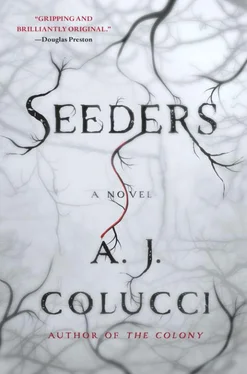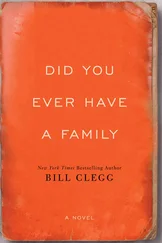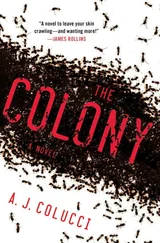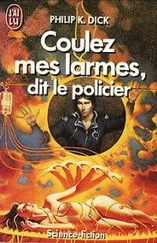Jules leaned back in his chair and exhaled, pinched the bridge of his nose. Did he really want to get into this now? No, but the boy had a right to know what a distinguished scientist his grandfather had been. It was doubtful that Isabelle had done the job.
“Well, let’s see. I don’t know much about his early years, except that he was a bright boy who had an affinity for nature, specifically mushrooms. He was a student at Cambridge, headed for a career in mycology, and by the time he was eighteen he’d discovered a dozen new species of fungi all over England. It seems he wrote a breakthrough scientific paper on mycorrhiza, the relationship between plants and fungi.”
“Mycorrhiza?”
“That’s not important. What is notable is that it garnered a lot of attention in the plant biology department and he was asked to join an experimental team to study how the roots of plants grow toward nutrients. During these studies he made the observation that the root network of a plant has similarities to the neural network of the brain.” Jules poured another glass of sherry and held it up brightly. “George focused all his research on the parallels between the signaling systems of plant and animal cells. How plants process information is remarkably similar to the electrical impulses of an animal’s nervous system.” He took a sip and put the glass down. “He went on to become a distinguished professor of plant biology at Oxford, and the work he did on long-distance signaling became the foundation for how plant biology is studied today.”
The boy’s eyes widened. “Wow. So he was an important man.”
“Yes, and never given his proper due.”
“You mean like with the polygraph experiment? Mom said he figured out why the plant reacted to you as the killer.”
“The discovery George made was one of the most significant in plant science.”
Luke leaned in.
“He believed the plant reacted to me for two reasons. Number one, plants have memory. Number two, they can distinguish between the scents of individual people. Of course, he had to prove this through an experiment, so what he did was introduce a rhododendron to the purified scent of his own body, while at the same time tearing off one of its leaves. In response to the wound, the plant immediately sent alarm signals from leaf to root, accelerating its production of ethylene and protease inhibitors against herbivores. After weeks of trials, George introduced only the scent, without hurting the leaves. Yet the plant still reacted as if it were injured. Therefore, George concluded, the plant was able to smell the scent and remember that it was accompanied by the tearing of a leaf.”
“Whoa.” Luke blinked hard.
“This was big news in the plant world, and would have given George prominence if it hadn’t been for that blasted publicity tour. We all warned him against it, but I guess the idea of fame got the better of him. There was a media sensation in the American press and for a single summer it was big news. But back in England, the scientific community was rather appalled. You see, some of the reporters interviewing George twisted his words around, trying to sensationalize his data. One man asked George if he had proven plants have a consciousness, and your grandfather said, ‘Of course. It proves they have a soul.’ I guess he got caught up in all the hype. And it didn’t help that George’s experiments were repeated by others with very mixed results. You see, in the world of science, ‘sometimes’ doesn’t count and reputations can sink quickly. Things were very bad when he returned to Oxford.”
“They fired him.”
“Yes, they did.”
“He started taking drugs.”
“That’s a long story.”
“It’s why his wife left him, and my mom.”
“Your grandmother was hardly…,” Jules grumbled, but stopped himself.
“What?”
“She was all right in the beginning, although terribly needy of attention. Grace was an American music student at Oxford and I think George was enchanted by her beauty and charm. She was a hippie sort, with lots of friends. Musicians and artists. George liked that, but there were always drugs around. Back then things were different, and George had a weakness for that kind of thing. Anyway, it doesn’t take away from the fact that your grandfather was a great scientist. While his groundbreaking results were eventually rejected and forgotten, I can tell you that recent experiments exposing plants to various colored lights have proven George was right—plants do have memory, and we’ve also learned that they can distinguish between odors.”
Luke nodded and the two were silent for a while. Jules sipped his drink.
“Dr. Beecher, do you think it’s possible that plants can think?”
“Most people would say no.”
“But you wrote a book on plant intelligence. I saw it in the lab.”
“An important measurement of intelligence is the ability to adapt to one’s environment, which implies thought. It’s all semantics.”
“I don’t know,” Luke said. “Intelligence requires a complex nervous system that’s only found in animals. I mean, without neurons, axons, and neurotransmitters for signaling and a brain to process everything, plants can’t think.”
Jules raised a brow. “You’ve a good understanding of the subject for your age.”
“Usually only seniors take neurobiology but I’m taking it next year.”
“You’re making the same mistake as most scientists, measuring intelligence as it relates to our own abilities. It’s a kind of meat chauvinism against any creature without a brain.”
“Yeah, but a nervous system is what separates intelligent animals from plants.”
“Are you sure? Both organisms have the same functions—eating, drinking, and reproducing—and both go about the task in similar ways. Plants and humans are nothing more than living machines and our actions are merely electrical signals going off at specific times and places in our bodies.”
“You make us sound like robots.”
“In a way, we are. Did you know in the last decade science has proven beyond a doubt that every aspect of consciousness is connected to the physical brain?” Jules leaned forward. “Why, I can actually hook you up to an fMRI that reads your mind by tracking blood flow to various parts of your brain. By matching the neural correlates, I can tell if you’re thinking about a car or a banana, if you are looking at a picture of a house or a photograph of your mother. You see, the brain works just like a supercomputer.”
Luke didn’t look convinced.
Jules put down his drink and picked up a pencil. He drew a crude brain across the back of an envelope. “Brain waves can be seen as loops and jags between the cortex and thalamus, which bind together various regions. Say you’re looking at a girl in a red dress; it binds the color red with girl and dress and thousands of other areas of the brain into a coherent conscious experience. Sort of like a radio transmitter and receiver tuned to the same frequency. There are over a billion neural connections in a square millimeter of brain matter, which allows trillions and trillions of possible combinations. Understand?”
Luke nodded thoughtfully. “So we’re nothing more than electrical signals going off in response to external stimuli.”
“Correct. No different than a plant.”
Luke grimaced. “Physically the two aren’t comparable.”
“But as I said, functionally they are. A plant is made up of living tissue with a messaging system of electrical signals that allow it to communicate with itself and other creatures in the environment.”
“Like when a Venus flytrap closes on an insect?”
“That’s a good example. You see, the Venus flytrap has four sensor hairs that an insect must trip twice, within twenty seconds, in order for the trap to close. This shows the plant has memory, and logic, really. What’s more, plants can make decisions . For example, a dodder has no leaves to make its own food, so it has to get nutrients by attacking other plants, using its sense of smell to find its victims. There could be ten different species nearby and it will always smell out the most succulent. Then it reaches across the soil and wraps itself around the plant several times, attaching suckers that penetrate its prey to extract the nutrients.”
Читать дальше












